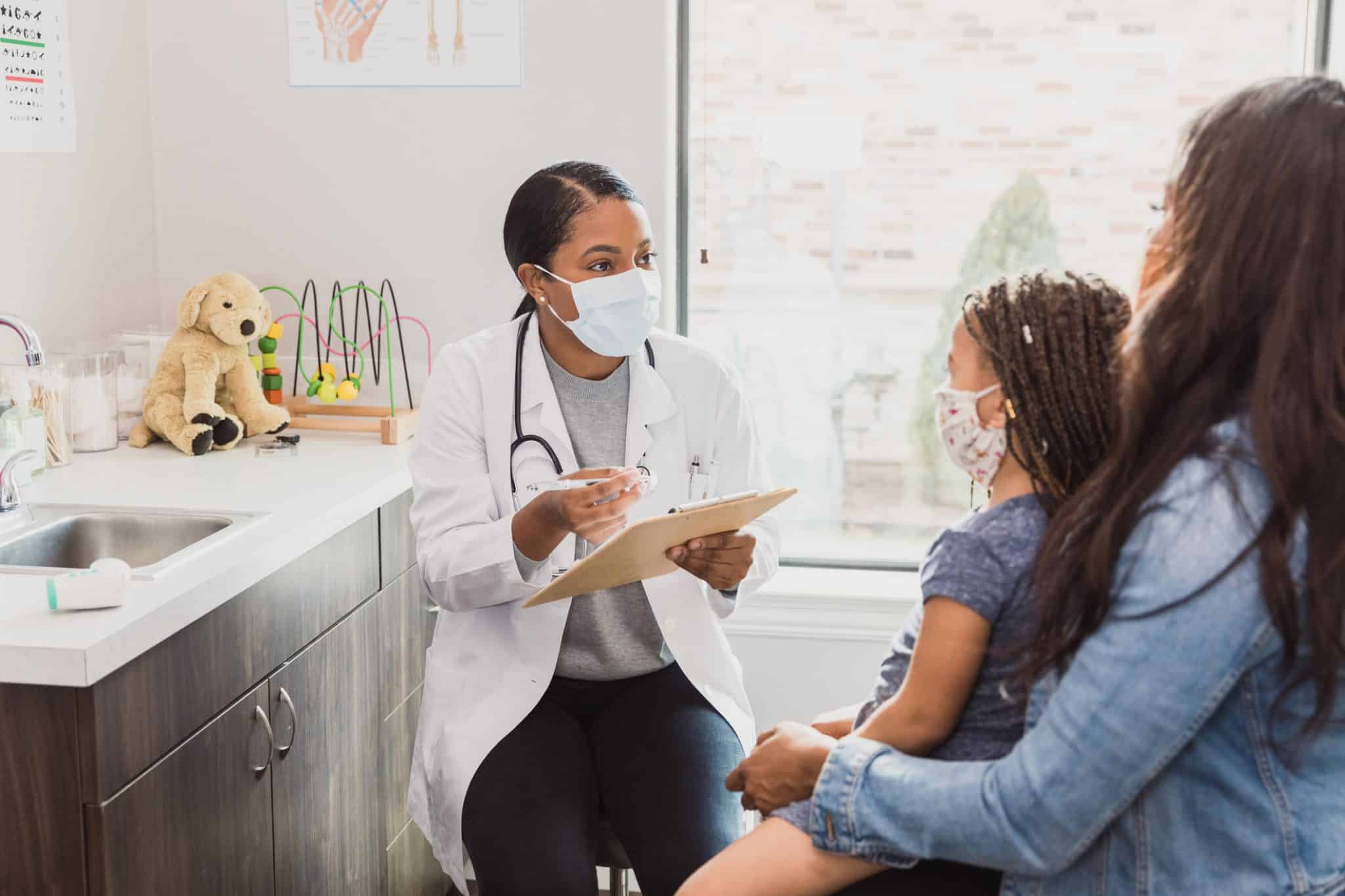The epiglottis is the flap of tissue at the back of the throat, and its job is to prevent food and liquid from entering the windpipe when you swallow. Epiglottitis is a rare but potentially life-threatening condition in children where the epiglottis becomes infected and inflamed, blocking or partially blocking the windpipe and interfering with breathing. We review everything you need to know about epiglottitis below.
What Causes Epiglottitis?

According to one study, “Epiglottitis is most commonly caused by bacterial infection resulting in inflammation and edema of the epiglottis and neighboring supraglottic structures. Acute infection was once found predominantly in children ages 2 to 6 years old.”
What Are the Symptoms of Epiglottitis?
Symptoms of epiglottitis include:
- Fever exceeding 101 degrees Fahrenheit
- Sore throat
- Harsh or raspy breathing
- Difficulty swallowing
- Excessive drooling
- Fussiness
- Preference to learn forward rather than lie down
Epiglottitis progresses quickly, which is why it’s important to seek treatment for your child as soon as symptoms present.
How Is Epiglottitis Treated?
If you catch symptoms quickly, your child’s pediatrician may be able to make a diagnosis without X-rays. If the symptoms are advanced, you will be directed directly to the emergency room. In this case, an X-ray will be ordered to make a diagnosis.
The treatment for epiglottitis is antibiotics that you can pick up at Central Ave Pharmacy. However, if your child’s symptoms are severe, they may need other interventions such as a breathing tube until the antibiotics begin to work.
All patients with epiglottitis should be admitted to intensive care to be closely monitored. According to the same study, “An airway specialist such as an otolaryngologist, anesthesiologist, or intensivist should ideally evaluate the patient immediately to give ample time for preparing to secure the airway if necessary.”
How Can Epiglottitis Be Prevented?
The best way to prevent epiglottitis is to make sure your child gets the Hib vaccine. They should receive the full series according to your pediatrician’s recommendation.
Whether or not your child is vaccinated, you should contact their doctor if they come into contact with another child who has epiglottitis. For more information or to schedule an appointment, call Albany ENT & Allergy Services today.